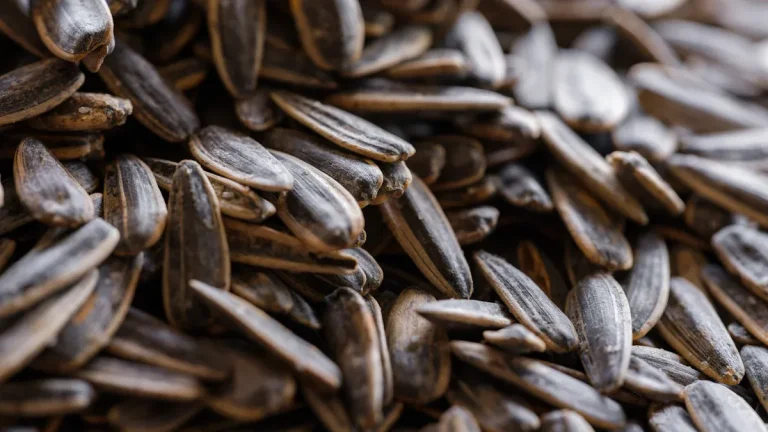
When you compare Carnivore Diet vs Keto, you see that most people choose these diets for weight loss, better blood sugar control, and sharper thinking. Recent studies show both diets can help you lose weight and improve health, but keto seems to offer more support for long-term health and sustainability.
Below, I’ve gathered some research on the topic
Study Description | Weight Loss | Health Improvements | Notes |
|---|---|---|---|
Carmen et al. (3 obese participants) | 10–24% BW loss | Less binge eating, fewer food addiction symptoms | 6–7 months duration |
Severely obese patients with NAFLD | Significant loss (more in males) | Better NAFLD biomarkers | Very low-calorie keto used |
Bruci et al. (3-month VLCKD study) | Nearly 20% loss | Better kidney function | Included mild kidney failure |
You want a diet that works for your body and lifestyle. This post will help you make a smart choice.
Carnivore Diet vs Keto: Key Differences

Food Choices
When you look at the carnivore diet vs keto, the first thing you notice is what you can eat. The carnivore diet only allows animal products. You eat meat, fish, eggs, and sometimes dairy. You do not eat fruits, vegetables, grains, or sugars. The keto diet gives you more options. You can eat meats, fish, eggs, dairy, avocados, nuts, and low-carb vegetables. This table shows the key differences in food choices:
Diet Type | Allowed Foods | Restrictions |
|---|---|---|
Carnivore Diet | Only animal products (meat, fish, eggs, some dairy) | No fruits, vegetables, grains, or sugars |
Keto Diet | Meats, fish, eggs, dairy, avocados, nuts, low-carb vegetables | Limited carbohydrates, but allows a variety |
Macronutrients
The macronutrient breakdown is another important difference. The carnivore diet uses a zero-carb approach. You get most of your calories from fat and protein. The keto diet is high in fat, moderate in protein, and very low in carbs. Here is a quick comparison:
Diet Type | Fat Percentage | Protein Percentage | Carbohydrate Percentage |
|---|---|---|---|
Carnivore Diet | 70-80% | 15-30% | 0-10% |
Keto Diet | 70-80% | 20-25% | 5-10% |
You will find that the keto diet allows 20–50 grams of carbs each day, while the carnivore diet keeps carbs as close to zero as possible.
Flexibility & Variety
You may find the carnivore diet very strict. You have few choices, which can make it hard to follow for a long time. The keto diet offers more flexibility. You can enjoy nuts, seeds, non-starchy vegetables, and even some low-carb desserts. This variety helps many people stick with keto longer. If you eat out, keto gives you more menu options, like bunless burgers or salads. The carnivore diet often means you need to prepare your own meals.
Note: The carnivore diet lacks fiber, which can affect your gut health. The keto diet includes some fiber from plant foods, which supports digestion and gut bacteria.
Scientific Support
Most research on these diets focuses on weight loss and health markers. Modern studies show both diets can help with weight loss and some heart health improvements. However, most health claims for the carnivore diet come from self-reported data, which is less reliable. The keto diet has more scientific studies and long-term data. Experts also point out that the carnivore diet may miss important nutrients like vitamin C, E, and fiber. The keto diet may lack some micronutrients, but it is less likely to cause major deficiencies.
Carnivore Diet vs Keto: Similarities

Low-Carb Focus
You see a strong low-carb focus in both the carnivore diet vs keto. These diets limit carbohydrates and push your body to use fat for energy.
Both diets restrict carbs to very low levels.
Animal-based foods make up most of what you eat, which keeps carbohydrate intake low.
People with inflammatory bowel disease have shown clinical improvements when following low-carbohydrate diets like these.
The keto diet promotes ketosis by reducing carbohydrate intake. When you eat fewer carbs, your body starts to burn fat and produce ketones. Ketones give you energy when blood sugar levels drop. The carnivore diet also leads to ketosis because you avoid almost all carbs.
Health Benefits
You may notice health effects from both diets. Many people report better overall health and more energy.
95% of people say they feel healthier after switching to these diets.
69% see improvements in chronic health conditions. These include excess weight, blood pressure, and blood sugar levels.
The keto diet has shown benefits for severe mental illness in clinical studies.
Both diets help you lose weight and control blood sugar levels. You may see lower blood pressure and better energy. These health effects make low-carbohydrate diets popular for people who want to improve their health.
Common Challenges
You may face similar challenges with both diets.
Health concerns can come up, especially if you follow the carnivore diet for a long time.
Nutrient deficiencies may happen because you cut out many foods.
Digestive issues are common, especially when you start.
Long-term sustainability can be hard. Social situations, like eating out or family meals, may feel tricky.
Tip: Planning meals and learning about nutrition can help you avoid common problems and enjoy the health effects of your chosen diet.
Which Diet Works Better?
Weight Loss
When you look at weight loss, both the carnivore diet and the keto diet can help you reach your goals. You may notice quick results at first because both diets cut out most carbohydrates. The keto diet uses a high-fat, low-carb approach that puts your body into ketosis. This process helps you burn fat for energy instead of sugar. Many people see steady weight loss effects with this method.
The carnivore diet also leads to weight loss, especially in the short term. You eat only animal products, which means you avoid processed foods and sugars. This can help you lose weight quickly. However, the strict nature of the carnivore diet makes it hard for many people to stick with it for a long time. Studies show that both diets can reduce body weight, but the keto diet has more research supporting its long-term success.
Tip: If you want a diet that helps you lose weight and keep it off, the keto diet may offer more flexibility and support.
Health Markers
You want to know how these diets affect your health. The keto diet can improve your cholesterol levels. Research shows that it often raises HDL (the “good” cholesterol) and lowers triglycerides. Some people see their LDL (the “bad” cholesterol) go up, while others see it go down. The results depend on what types of fats you eat. The keto diet also helps lower blood sugar and reduce inflammation.
The carnivore diet can raise your LDL cholesterol. High LDL is a risk factor for heart disease. This diet does not give you antioxidants or fiber, which are important for heart health. Without these nutrients, you may have higher cholesterol and a greater risk of heart problems. The keto diet has mixed results for cholesterol, but it usually improves HDL and lowers triglycerides.
Health Marker | Keto Diet | Carnivore Diet |
|---|---|---|
HDL Cholesterol | Often increases | May increase |
LDL Cholesterol | Mixed results (can rise or fall) | Often increases |
Triglycerides | Usually decrease | Not well studied |
Blood Sugar | Usually decreases | May decrease |
Fiber Intake | Some (from plants) | None |
Antioxidants | Some (from plants) | None |
Note: The keto diet has more clinical evidence for improving health markers. The carnivore diet lacks long-term studies and may increase health risks.
Sustainability
You may wonder which diet you can follow for a long time. Both the carnivore diet and the keto diet are restrictive. You cut out many foods, which can make it hard to get all the vitamins, minerals, and fiber you need. The keto diet gives you more choices, so you can eat a wider range of foods. This makes it easier to stick with over time.
Both diets can cause diet burnout because you eat the same foods often.
You may miss important nutrients, especially if you do not plan your meals well.
The carnivore diet is more likely to cause deficiencies because you skip all plant foods.
The keto diet lets you eat some vegetables, nuts, and seeds, which helps you get more nutrients.
Diet Type | Long-Term Adherence | Risk of Deficiencies | Dietary Diversity |
|---|---|---|---|
Carnivore Diet | Low | High | Very Low |
Keto Diet | Moderate | Moderate | Moderate |
Planning and support can help you avoid problems, but the keto diet is usually easier to maintain.
Lifestyle Fit
You want a diet that matches your lifestyle. The carnivore diet is simple. You only eat animal products, so meal planning is easy. If you like structure and do not mind eating the same foods, this diet may work for you. However, it can be hard in social situations. You may struggle at family meals or when eating out because your choices are limited.
The keto diet gives you more flexibility. You can enjoy a variety of foods, including some plant-based options. This makes it easier to fit into different cultures and social events. If you like trying new recipes or want more variety, the keto diet is a better fit.
Diet Type | Simplicity | Flexibility | Social Fit | Variety |
|---|---|---|---|---|
Carnivore Diet | High | Low | Low | Low |
Keto Diet | Moderate | High | High | High |
If you want a simple plan, the carnivore diet may suit you.
If you enjoy variety and social eating, the keto diet is a better choice.
Both diets can be hard to follow in social settings, but the keto diet offers more options and is easier to adapt.
Choosing the right diet depends on your health goals and lifestyle.
Nutrition experts agree that no single diet fits everyone.
The keto diet offers more food variety and flexibility, making it easier for most people to maintain.
The carnivore diet may help if you have food sensitivities or specific health issues, but experts do not recommend it for long-term health.
Think about your needs, metabolic flexibility, and what you enjoy eating. If you want to start, begin by cutting sugar, grains, and starchy foods. Celebrate each healthy step you take!




